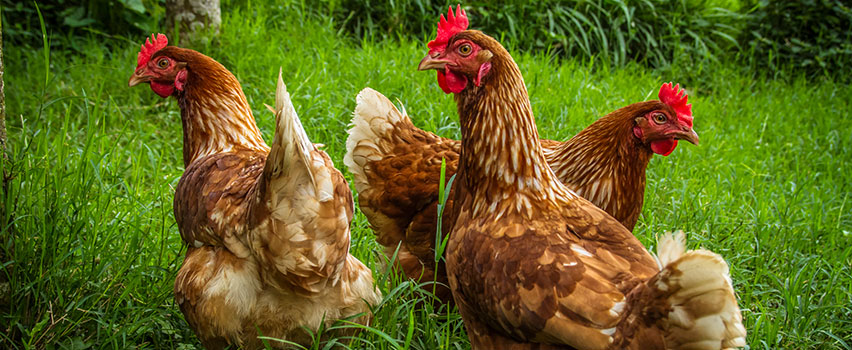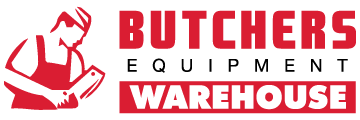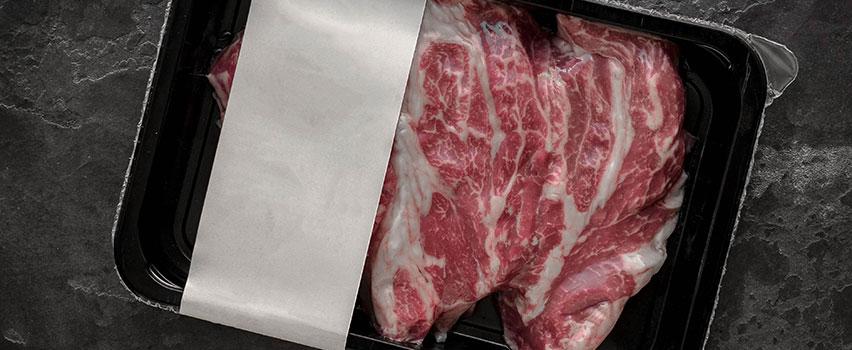A quick guide to 5 of the most common meat labelling terms
Outdoor reared, organic, free range - it’s not hard to take educated guesses about roughly what these terms mean. But while many of them might sound roughly the same, they bear subtle but significant differences which could make all the difference as to whether you’d consciously choose to eat them. Happily, if you’re a customer, you can always ask your local butcher for clarity - you can always trust the experts with the best butchers equipment to know the answers! To give you a bit of a head-start though, we’ve explained five of the most common terms you can expect to find on your average meat-product label.
The Red Tractor
The distinctive Red Tractor logo has been around for more than 20 years now, having undergone one or two changes since its first iteration. In a nutshell, it indicates that the product in question can be traced back to a farms working to the official Assured Food Standards. That guarantees the product was born, raised, slaughtered, packaged and prepared exclusively within the UK. If it fails to meet even one of these criteria, it won’t be able to earn the Red Tractor certification.
As you can probably infer, the Assured Food Standards set a high bar for each product to meet, so you can be sure of quality when you buy. The Red Tractor can be found on chicken, pork, lamb and beef, as well as other foods such as dairy and fresh produce.
Quality Standard Mark Scheme
Alongside the Red Tractor, the Quality Standard Mark is one of the single most reliable indications of a quality product. The Quality Standard Mark Scheme is notable for providing one of the highest independently inspected assurances for beef and lamb. Meat products which have earned the Quality Standard Mark have been prepared to much higher standards than the minimum required by law, and chosen according to a strict selection process to ensure that they’re succulent and tender. Just as with the Red Tractor, it stipulates that the animal has to have been born, raised and slaughtered within the UK.
Outdoor reared
This is one to particularly look out for when it comes to pork. Pigs that have been ‘outdoor reared’ have been bred outdoors, and then remain outdoors for about half their lives. This may not necessarily be out in open pasture - instead, they’re homed in outdoor pens or paddocks, with large straw-bedded huts and dry laying areas for shelter from the elements, before they’re eventually brought indoors for fattening. Most importantly, this means they never spend their lives confined in metal cages.
‘Outdoor bred’ is often considered to mean roughly the same thing, with pigs born in outdoor systems, and brought indoors at or shortly after the weaning process, steadily being fattened in large air barns or purpose-built facilities.

Free range
You probably have a good idea of what free range already; it’s broadly considered to refer to when livestock lives in natural conditions, with freedom of movement. It’s often heard in relation to poultry, but it’s a term worth treating with caution when it’s used in relation to pork. That’s because there’s technically no legal definition of ‘free range’ pork - some farms like to use it to imply that their pigs have access to fresh pasture, but no independent body exists to reliably verify these claims, so whether or not you choose to accept it at face value is ultimately up to you.
Organic
Organic meat is used to refer to quality meat which has been produced with the highest standards of animal welfare in mind. Organic farming techniques are careful to avoid the use of man-made fertilisers, pesticides, growth regulators and livestock feed additives. Instead, organic meat comes from livestock which has had access to continuous and easy daytime access to a spacious outdoor range, with suitable vegetation for them to graze and forage for their natural diet.
If you like, it’s the next step up from outdoor bred and outdoor reared. Don’t forget though, that this association only goes one way - in other words, all organic meat is from livestock which has been outdoor reared, but not all outdoor reared meat is organic.
So, that’s the basics covered. If you need any more detailed information, or for answers to more complex queries, don’t hesitate to ask your butcher! And if you’re looking for some next-level equipment to help you prepare the meat in question, you’re in exactly the right place. Here at Butchers Equipment Warehouse, we stock a huge range of butchers knives and sharpeners, as well as a broad choice of butchers machinery and butchers spares and consumables, ideal for any private or commercial kitchen. If you need any advice or you’re looking for anything in particular, don’t hesitate to give us a call on 01254 427761. We’re here to help!




